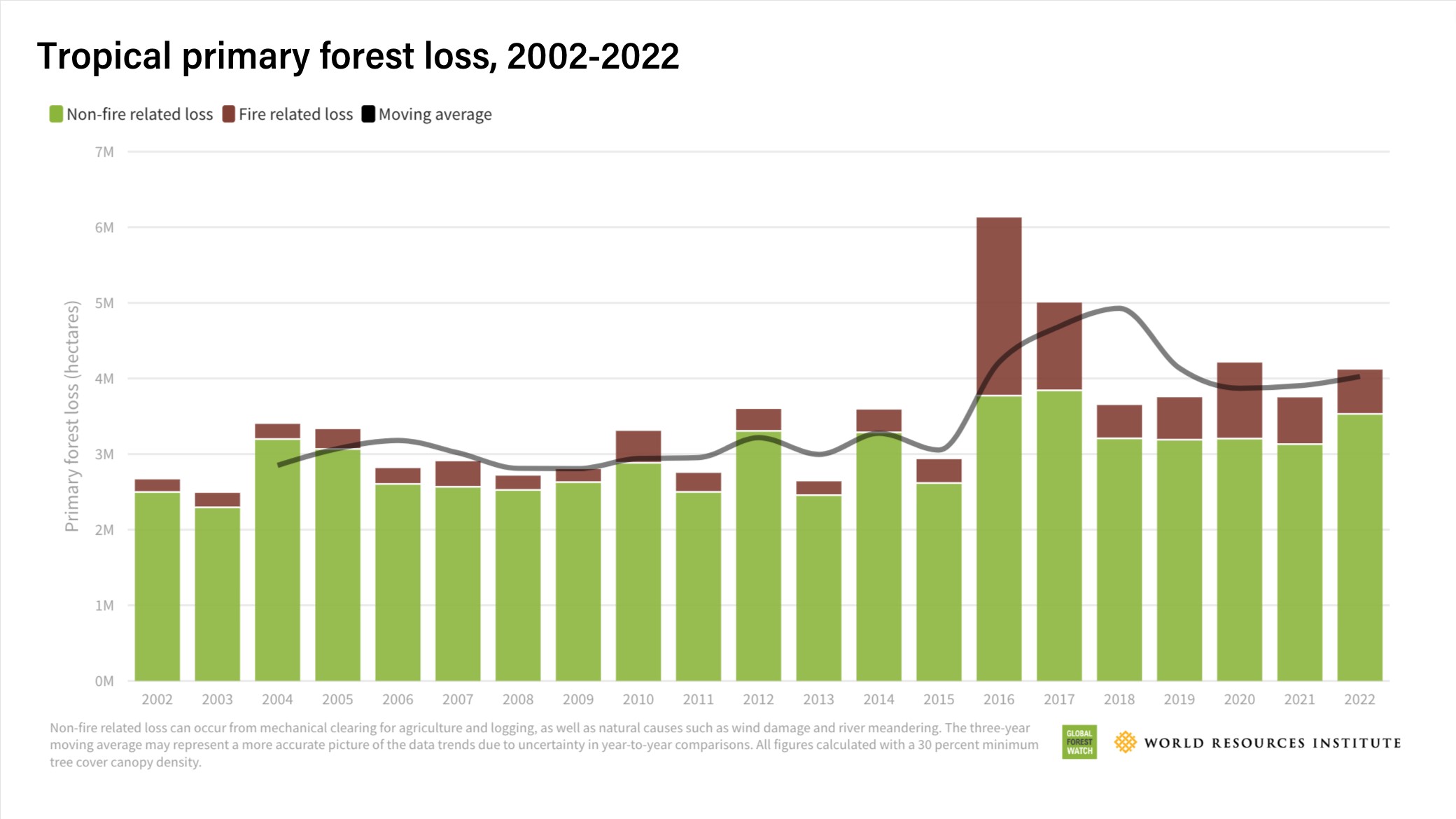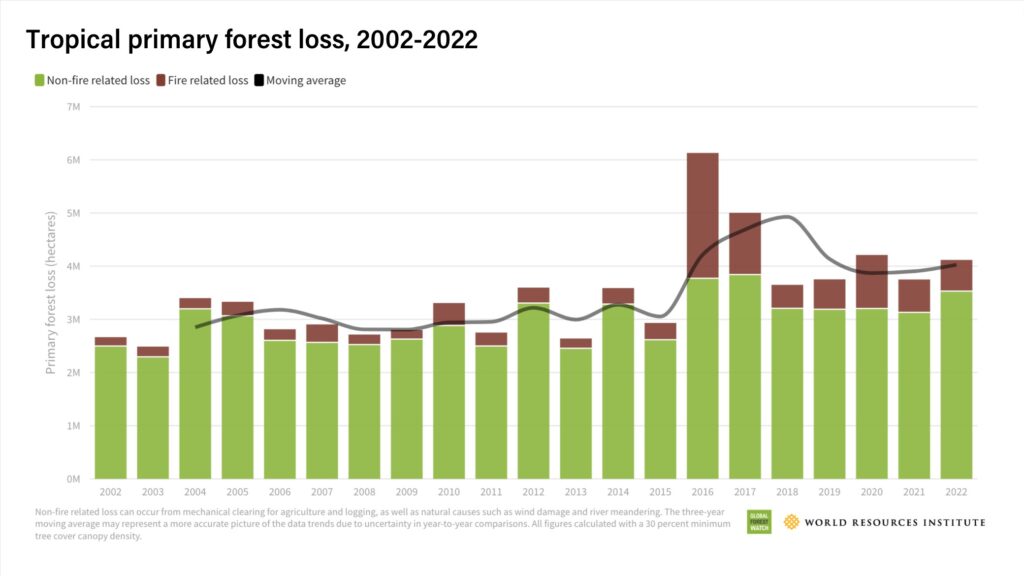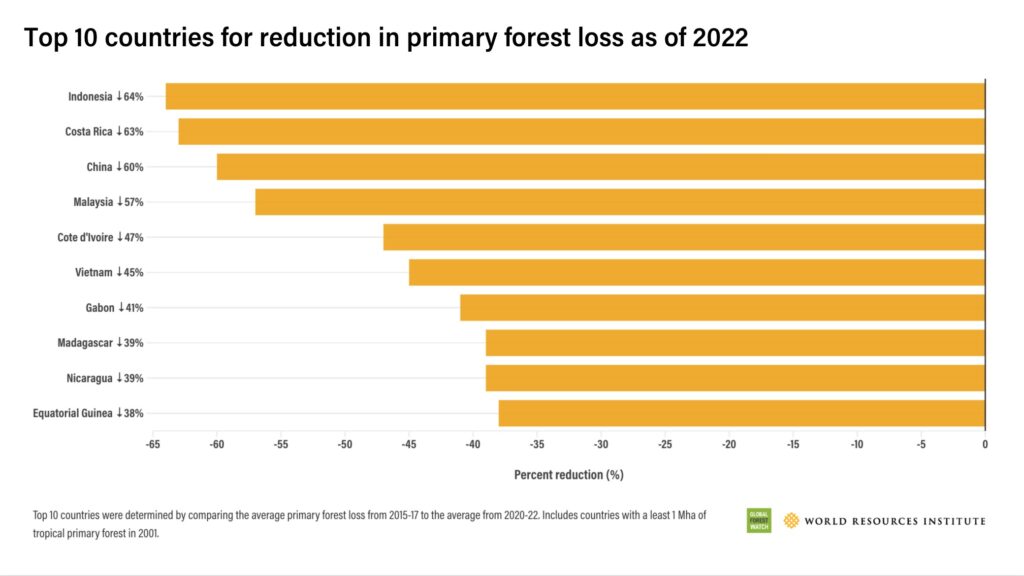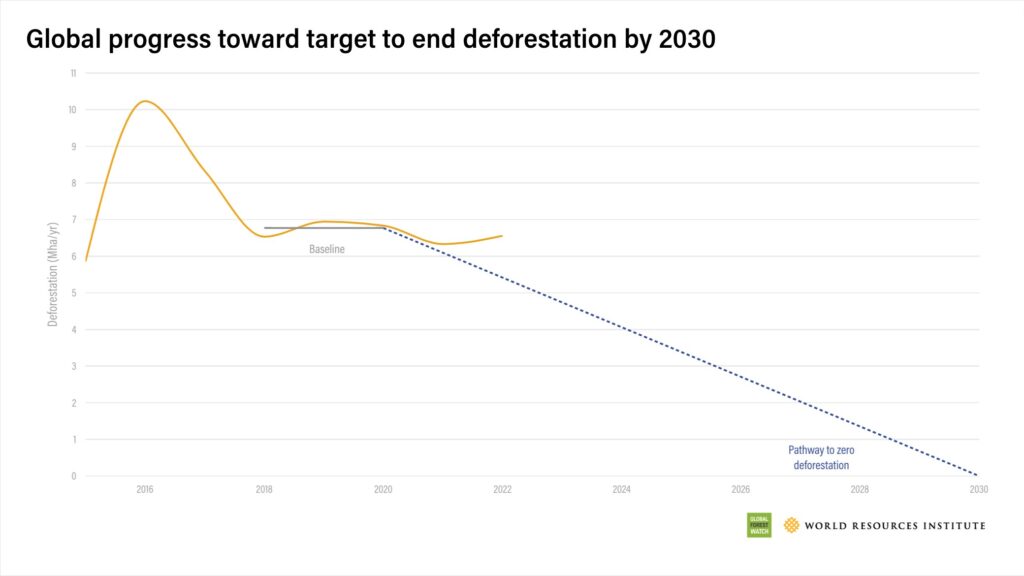
– Continued high loss of tropical rainforest is a powerful warning to the world. Fortunately, several developments indicate that we can reverse the trend, says Climate and Environment Minister Espen Barth Eide.

The tropical primary forest is essential for our livelihoods. Loss of rainforest means we are losing one of our most important tools to stop climate change in line with the Paris Agreement and to preserve nature in line with the Global Biodiversity Framework adopted in Montreal last year.
The figures for 2022 show that the loss of tropical forest increased by 10 per cent from the previous year, equivalent of 11 football pitches of primary rainforest lost every minute. It also corresponds to emissions of 2.7 billion tonnes of CO2, as much as the annual fossil emissions of the world’s most populous country, India.
Powerful changes in key forest countries
Indonesia has the third largest preserved tropical forest on the planet. In recent years, deforestation in the country has been at a record low – the lowest in 20 years. Since 2015 alone, deforestation in Indonesia has been reduced by 90 percent.
– The success of Indonesia is a good example that strong government policy measures are a working. We are proud of our partnership with Indonesia, and look forward to further supporting the government’s impressive results and ambitious plans, says Climate and Environment Minister Barth Eide.

Through the Norway-Indonesia partnership, Norway will support Indonesia’s efforts to achieve a net sink in the forestry and other land use sectors by 2030 by reducing emissions from deforestation, forest degradation and carbon-rich peatlands as well as absorbing more carbon through restoration of forests, peatlands and mangroves. This involves, among other things, sustainable forest management, social forestry and land rehabilitation, reducing emissions from fires and peat decomposition, and strengthening law enforcement.
Brazil, still under President Jair Bolsonaro, accounted for the largest share of the global tropical forest loss with 43 percent. However, President Lula, who took office last winter, has made stopping deforestation a top priority. His government has taken effective measures against illegal deforestation, and preliminary figures suggest that deforestation in the Brazilian Amazon may have been reduced by over 30 percent in his first five months in power.
– The recent numbers from Brazil give great reason for optimism, it shows that political will and ability to implement measures work, says Espen Barth Eide, who travelled to Brazil in March.
Also in Colombia, President Petro and Minister of Environment Susana Muhamad have raised forests and the protection of the Amazon to the top of their political agenda, and they have linked the transition away from deforestation to the implementation of the peace agreement. Preliminary figures from the Colombian authorities indicate that deforestation has decreased significantly in 2022.
Increased international collaboration
Recent years has seen a strengthening of international collaboration to halt and reverse deforestation. At the climate summit in Glasgow, 145 countries agreed to halt and reverse deforestation by 2030 and an increasing number of countries are allocating funds to preserve the rainforests.
– It gives hope that many forest countries have leaders who want to reduce deforestation and that the understanding of the importance of forests for both climate and nature has become so much greater internationally, both among state leaders and in the private sector, says Barth Eide.
Strong reduction required
To achieve the goal of zero deforestation by 2030, the world must see an annual reduction in forest loss of ten percent. Last year’s figures, on the other hand, show an increase of ten percent, largely due to an increase in Brazil.

– Despite the positive development in important countries, the overall situation is very serious. These figures give the world a clear marching order to step up efforts to stop deforestation. This will be a key topic at the UN climate change conference in Dubai later this year, says Barth Eide.
In Glasgow, 12 billion dollars was also promised for forest conservation and through the LEAF coalition, large global companies are also helping to pay countries that reduce deforestation. More and more companies and investors are voluntarily committing to eliminating deforestation from their supply chains and portfolios.
Forest to the climate summit
Together with partner countries, Norway is working with the host of the UN climate change conference (COP28), which will be held in the United Arab Emirates in December 2023. There is a great interest in raising rainforest conservation and other nature-based solutions as main issues at COP28.
– At the climate summit in December, the world will take stock of how we intend to achieve the goals of the Paris Agreement. Stopping deforestation must become a main priority this decade to keep the goals of the Paris Agreement alive, says Barth Eide.
